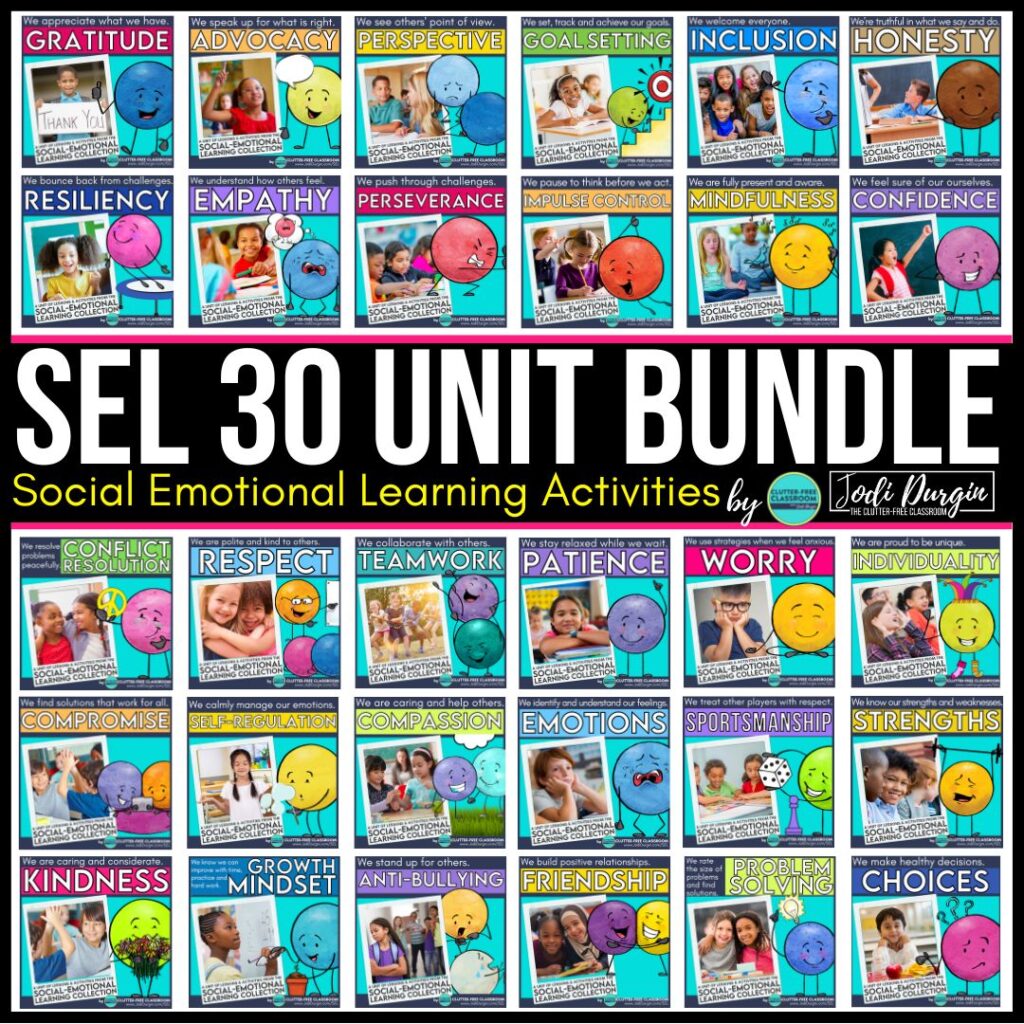If you are an elementary teacher looking to learn how to help your students develop skills for being honest, then you found the right place! Honesty skills prepare kids to tell the truth in difficult situations and have integrity. Students who are able to use honesty become more trustworthy and responsible than students who do not. In this post, we’ll go into detail about what honesty is and why it’s important. In addition, we’ll share tips and ideas for teaching honesty in the classroom. Read all about helping students be honest in and out of the classroom below!
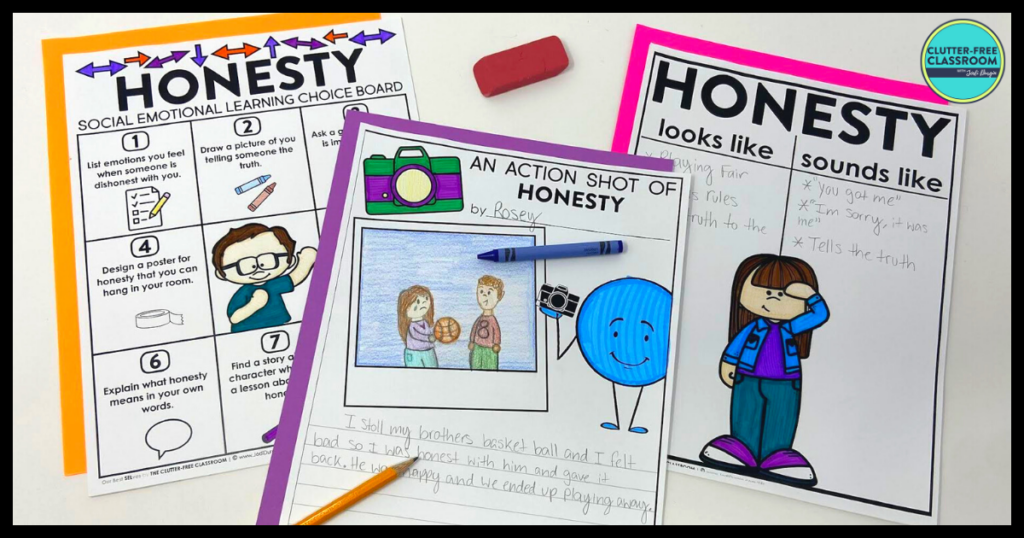
What Does Honesty Mean?
Honesty means being truthful and sincere. Students who are honest, tell the truth and stay away from lying. Students who are honest have integrity and know the importance of being truthful and fair.
Why is it Important for Kids to Be Honest?
It is important for kids to be honest because it is a necessary life skill for having integrity and forming trust in friendships and relationships. The sooner students learn honesty the easier it will be for them to grasp the importance of being truthful. You want to teach your students the importance of honesty before they start to form untruthful habits.

How Do I Know If I Need to Teach Honesty in My Classroom?
The students in your 1st, 2nd, 3rd, 4th or 5th grade classroom would benefit from honesty lessons and activities if any of these statements are true:
- Students are not being truthful.
- You find you are losing instructional time trying to get to the route of peer issues.
- You frequently have to sort out recess drama.
- Students have been off task when working independently.
- Students have a hard time using technology appropriately.
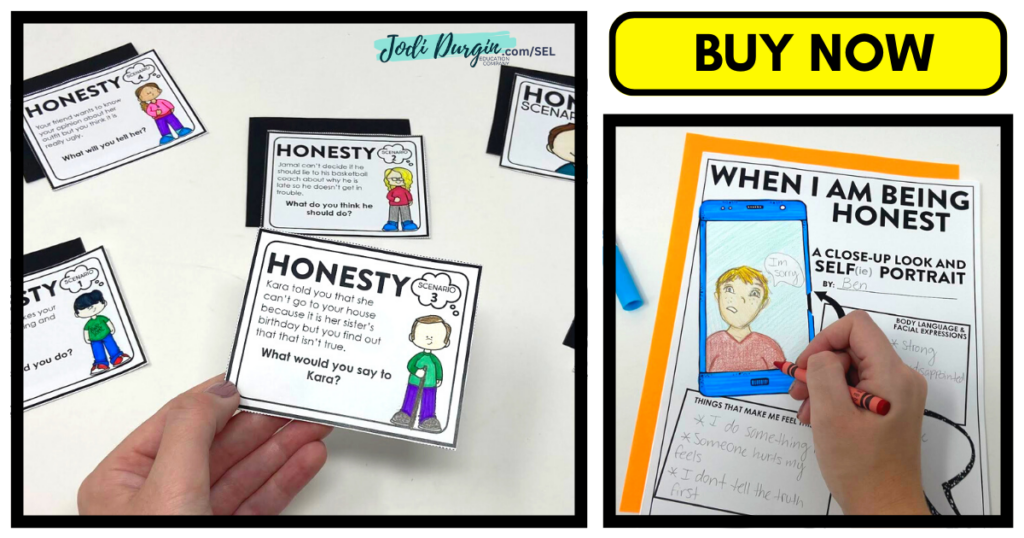
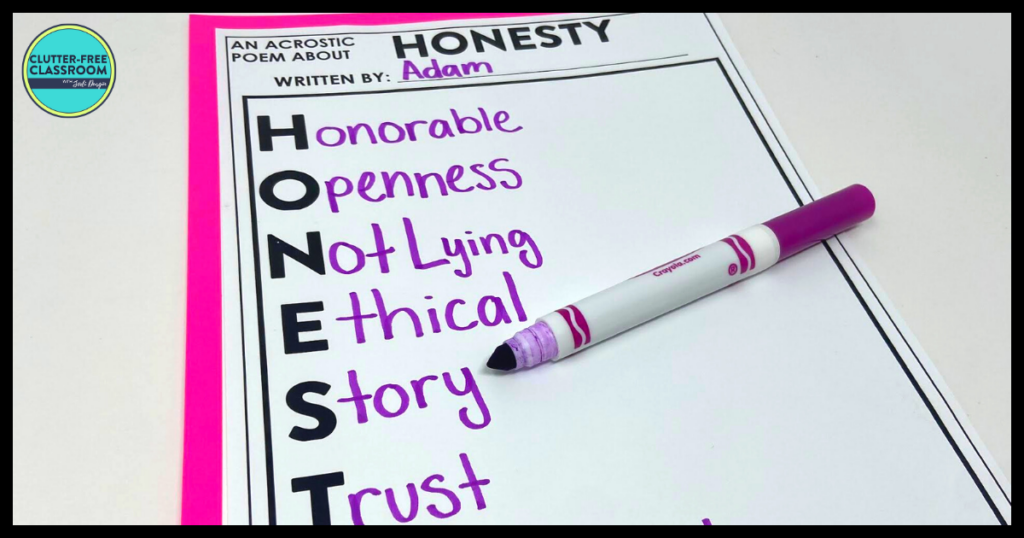
5 Reasons To Promote Honesty In Your Elementary Classroom
Below are 5 reasons to promote honesty in your elementary classroom.
1. Students will be more trustworthy
It comes natural that students who are honest are going to become more trustworthy. They will be able to handle more independent tasks with you knowing they are doing what they are supposed to do and if an issue arises you will be more confident that they are telling you the truth.
2. Students will be more responsible
Students who are honest become more responsible. They know the importance of maintaining their obligations and staying truthful to whether or not they are completing them. Being trustworthy builds their responsibility to themselves and others.

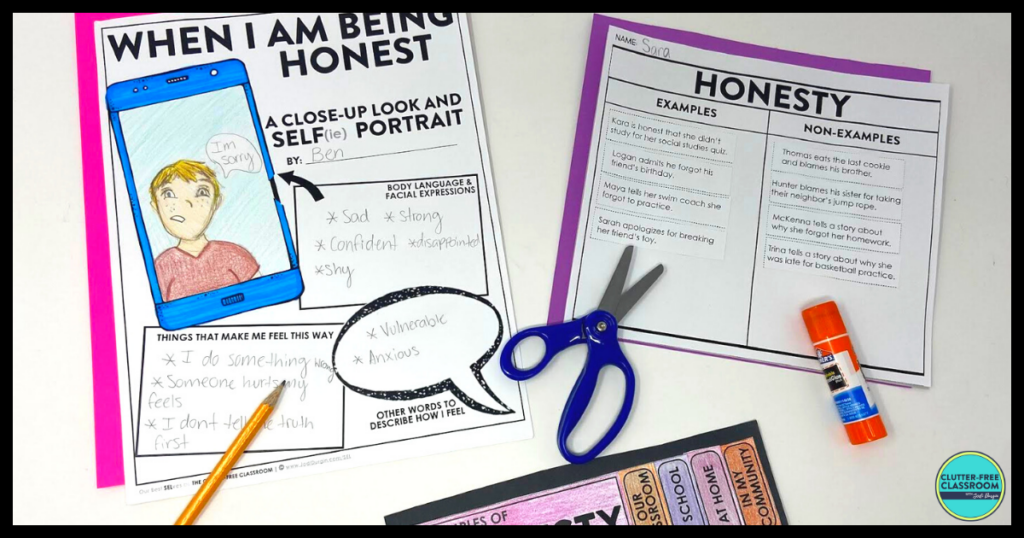
3. You will strengthen your classroom community
Your classroom community will thrive when your students learn honesty. There will be less game playing of trying to figure out who is telling the truth and students will be able to rely on each other and build stronger relationships.
4. You will gain back valuable teaching time
Valuable instructional time gets lost in the process of trying to figure out who is telling the truth when peers disagree or get into a dispute. Honesty will help you and your students resolve conflicts faster and in a matter where everyone feels confident the truth has been heard.
5. Students will be better friends to each other
Honesty is an important building block in friendships. It is hard to have a positive friendship with someone you can’t trust. Friendships that are built on mutual honesty are much healthier and much more sustainable.


5 Tips and Ideas for Teaching Honesty
Below are tips and ideas for teaching honesty in the classroom to elementary students.
1. Read Aloud Picture Books about Honesty
Picture books are a great way to introduce and teach an SEL topic. It gets students thinking about the topic and activating their background knowledge. Check out this list of picture books for teaching honesty!
2. Watch Videos about Honesty
There are tons of free online videos out there that promote social emotional learning. It’s a fun and engaging way to teach SEL skills that your students will enjoy. Check out these videos for teaching honesty!
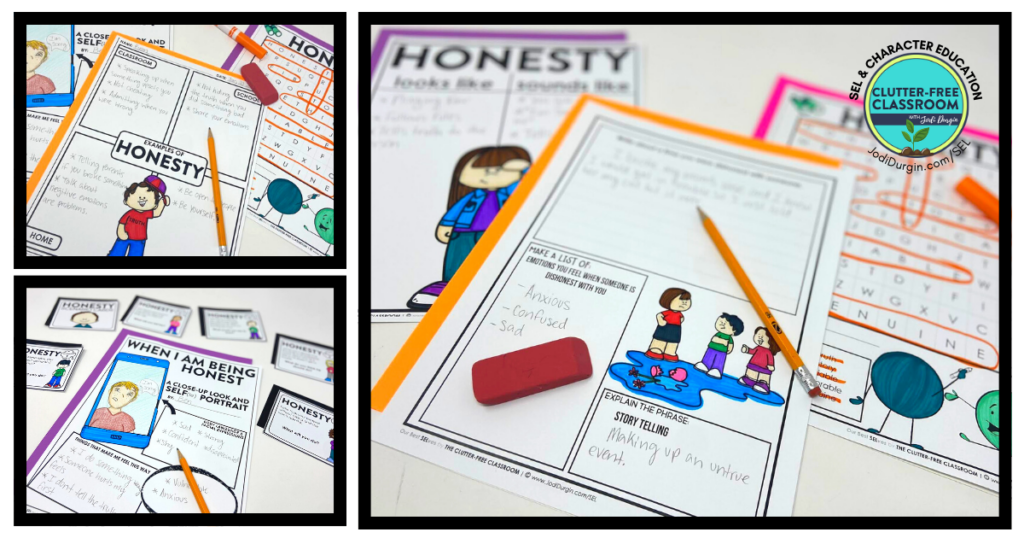

3. Explicitly Teach Vocabulary Related to Honesty
Vocabulary words can help students develop understanding of honesty and create connections through related words. Our honesty SEL unit includes ten vocabulary cards with words related to the SEL topic. It is important for students to be able to see, hear, and use relevant vocabulary while learning. One idea for how to use them is to create an SEL word wall as students learn the words.
4. Provide Practice Opportunities
When learning any skill, students need time to practice. Social emotional learning skills are no different! Our honesty SEL unit includes scenario cards, discussion cards, choice boards, games, and much more. These provide students with opportunities to practice the skills independently, with partners or small groups, or as a whole class.
5. Integrate Other Content Areas
Integrating other content areas with this topic is a great way to approach this SEL topic. Our honesty SEL unit includes reading, writing, and art activities.
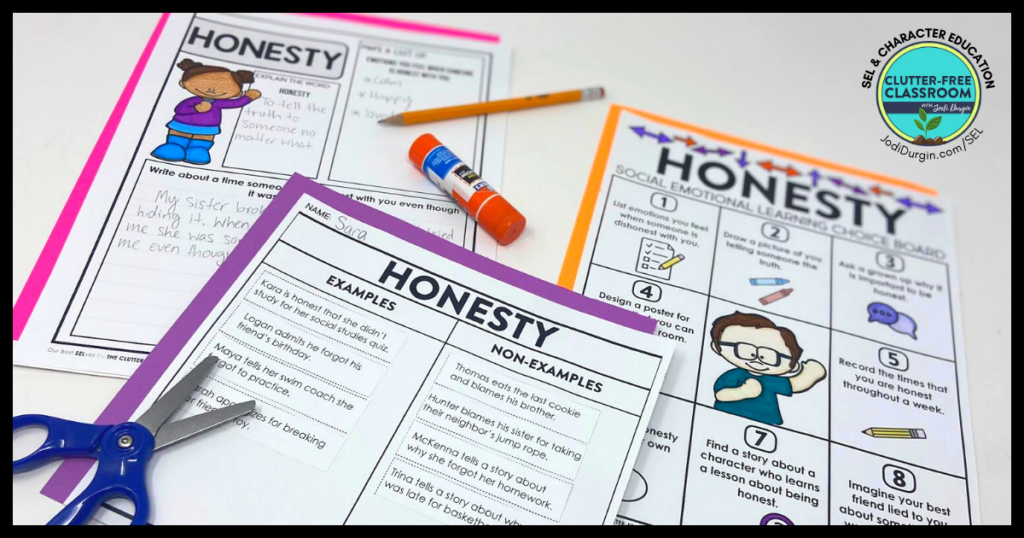

Skills Related to Honesty
Honesty, in the context of social emotional learning (SEL) or character education, refers to the quality of being truthful, sincere, and trustworthy in one’s words, actions, and interactions. While “honesty” is the commonly used term, there are other words and phrases that can convey a similar meaning. These alternative words highlight different aspects of integrity, truthfulness, and ethical behavior. Here are some other words used in the context of honesty:
- Integrity: Demonstrating strong moral and ethical principles, consistency, and honesty in one’s actions.
- Truthfulness: Speaking and acting in accordance with the truth, being honest and genuine.
- Sincerity: Expressing genuine thoughts, feelings, and intentions without deceit or pretense.
- Authenticity: Being true to oneself, genuine, and transparent in thoughts, actions, and relationships.
- Trustworthiness: Building and maintaining trust through reliability, honesty, and dependability.
- Transparency: Openness and clarity in communication and actions, without hidden agendas or deception.
- Veracity: Commitment to telling the truth and being accurate in one’s statements.
- Reliability: Being consistent, dependable, and trustworthy in fulfilling commitments and obligations.
- Honor: Upholding a strong sense of moral and ethical values, including honesty and integrity.
- Candor: Speaking openly and honestly, even in difficult or uncomfortable situations.
These terms reflect the concept of honesty and encompass the qualities of truthfulness, integrity, and ethical behavior within the context of social emotional learning (SEL) or character education.
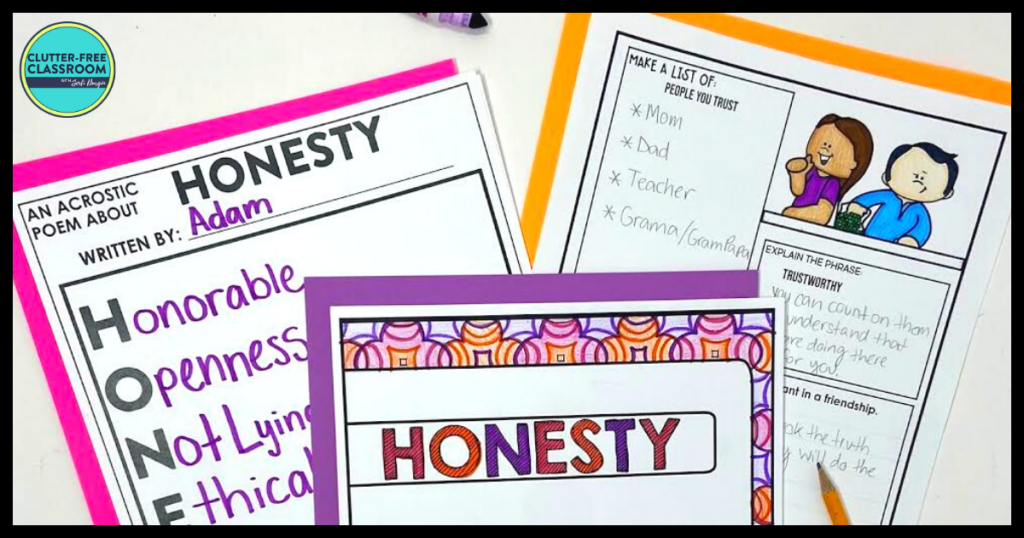

Download the SEL Activities
Click an image below to either get this individual honesty unit or get ALL 30 SEL units!
In closing, we hope you found this information about teaching honesty in the classroom helpful! If you did, then you may also be interested in these posts.


